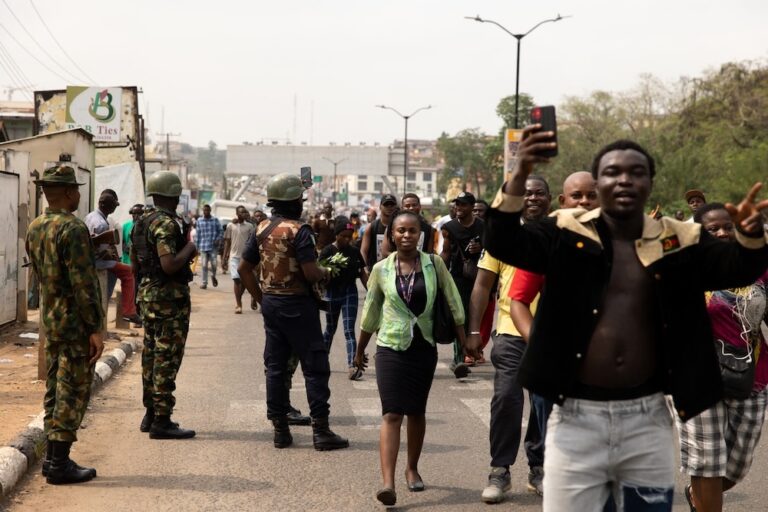(RSF/IFEX) – On 21 November 2002, RSF called on the Nigerian authorities to protect press freedom in northern Nigeria after Islamic fundamentalists burned down part of the offices of the daily newspaper “This Day” in Kaduna. “It is getting harder and harder for journalists to do their job in the region,” said RSF Secretary-General Robert […]
(RSF/IFEX) – On 21 November 2002, RSF called on the Nigerian authorities to protect press freedom in northern Nigeria after Islamic fundamentalists burned down part of the offices of the daily newspaper “This Day” in Kaduna.
“It is getting harder and harder for journalists to do their job in the region,” said RSF Secretary-General Robert Ménard in a letter to Kaduna State Governor Alhaji Ahmed Makarfi. “Several journalists have been physically attacked or threatened by Islamic fundamentalists or by police. The local authorities must take clear steps to guarantee press freedom.”
Several hundred Muslims arrived in a bus at the Lagos-based newspaper’s offices in Kaduna on 20 November and burned down part of the building. Earlier in the day, youths burned all the copies of the newspaper at a warehouse. They were angry that the newspaper had carried an article on 16 November saying that the Prophet Mohammed “would probably have chosen a wife” from among the Miss World candidates who will appear in the contest in Nigeria on 7 December.
Several religious groups have strongly protested against the article and called for the newspaper to be punished. The Supreme Council for Sharia Implementation in Nigeria said the newspaper had “declared total war on Islam” and that Muslims should therefore also “declare war on the newspaper.” The organisation also called for an advertising boycott of the newspaper.
On the eve of the fire in Kaduna, the newspaper’s management had printed an apology to Muslims and said it had erred in publishing the article. The newspaper “Daily Trust” reported that federal security officials had summoned “This Day” managing editor Nduka Obaigbena for questioning.


